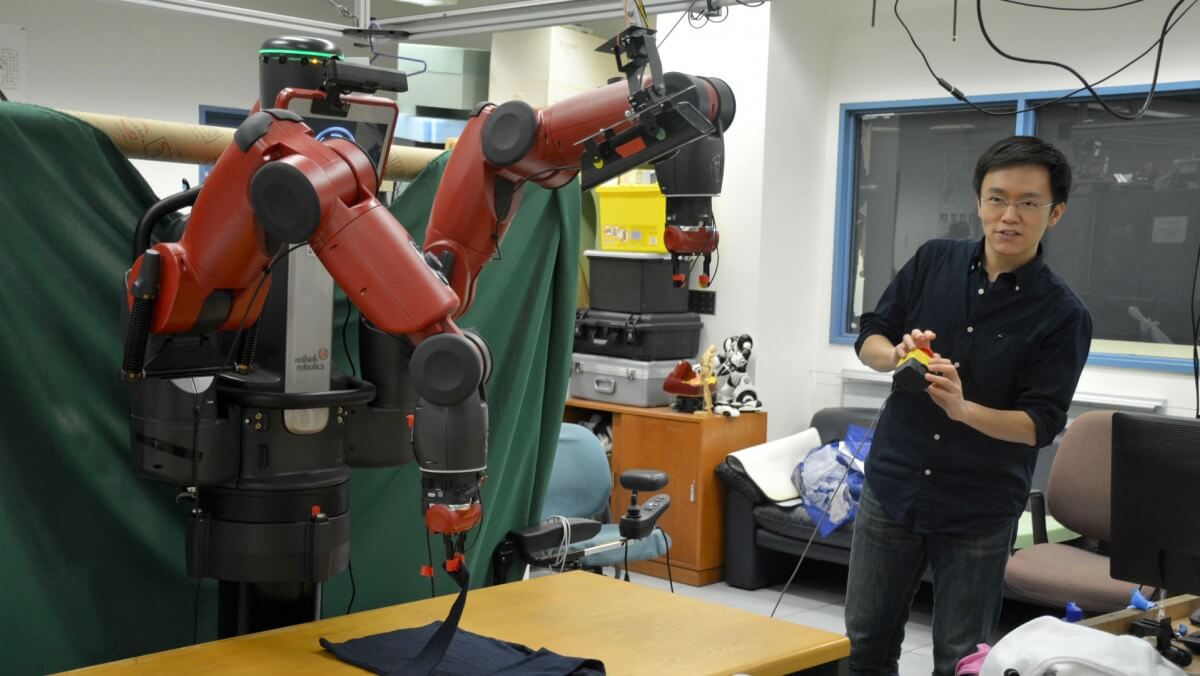Data scientists tackle complex scientific and societal problems that transcend academic disciplines and geographic borders. As a data scientist, you might research trends in international finance and global markets, the effect of climate on agriculture, or the origin and spread of disease—international issues that require the kind of global perspective you find in world-class programs like those offered by the Data Science Institute at Columbia University in New York.
Columbia’s Data Science Institute offers master’s and certificate programs, which apply the most advanced tools of computing, statistics, machine learning, and mathematics to questions of global significance. And with its international faculty and student body, plus its reach and resources from around the world, the Data Science Institute prepares graduates to operate in a global arena.
Here, students engage in an interdisciplinary curriculum, along with research opportunities, practical training, and internships with industry partners, to enhance graduates’ existing careers or help them launch brand-new ones. Graduates have found work at companies such as Google, Facebook, Amazon, Microsoft, JP Morgan Chase, IBM, and Bloomberg.
Working across disciplines
Hailing from 12 of Columbia’s schools, the Institute’s 300 faculty affiliates teach students to combine the tools of data science with expertise in the arts and sciences, law, medicine, engineering, public policy, public health, journalism, urban planning, architecture, and business, just to name a few.
Columbia houses the largest repository of declassified government documents in the US, which students of history, law, or journalism can explore for patterns that reveal insights and can inform public policy. Students interested in urban planning can work within the Institute’s “Smart Cities” Center to understand traffic patterns or the use of public spaces. Students of biomedicine can contribute to Columbia Medical Center’s effort to collect one billion health records with an aim of predicting drug side effects at both population and patient levels.

Journalism students learn to find and tell data-driven stories, while those interested in astronomy can use data science to search for new planets and solar systems. The Campus Connections program will help match you with a faculty member whose research interests coincide with yours, and the Capstone research projects give you real-world research experience in partnership with leading companies, government agencies and nonprofit organizations.
Student Profiles:
Located in New York City, The Data Science Institute fosters a cosmopolitan culture in which international students thrive. In any given year, up to 75 percent of the Institute’s students come from outside the US. Here are a few of their stories:
Manksh Gupta had earned a degree in statistics from the University of Delhi, India, and also spent a summer studying at the London School of Economics. When he began to read deeply in the field of data science, he discovered the work of Columbia professors David Blei and John Paisley; two faculty members of the Data Science Institute renowned in the field of machine learning. Wanting to study with them, Gupta applied to the Institute’s master’s program, and to his immense delight he was accepted.
As a master’s student, Gupta now studies with the very professors whose work he had once only read about. He assists in research that tracks residential energy use with sensors, helping to develop smart systems that conserve energy and reduce pollution.
“I can’t believe I’m studying with the best professors in the field whose work I read with great interest while studying in New Delhi,” says Gupta. “It’s fantastic.”

Zhengyuan Shi came to the Data Science Institute from China, because, he says, “Columbia University is prominent throughout China, and the Data Science Institute is known for having the best data-science master’s program.”
After graduating from the master’s program in December 2017, Shi found a job working as a programmer analyst for Walmart: Sam’s Technology. He had studied computational math in China, and earning a master’s in data science enabled him apply his theoretical background to real-world projects.
At Walmart, he says, he learns “…how data science is used at a major US corporation that amasses enormous amounts of data every day,” noting that, “I know that whatever I do [in the future], having a master’s degree from the Data Science Institute will always be a great asset.”
Satisfying Career Paths
The job market for data scientists is strong, with the demand far outstripping supply. For the second consecutive year, the jobs website Glassdoor in 2018 named data scientist the top career in the nation. PwC also projected that 2.3 million job openings called for data science skills, adding that “the best jobs right now in America include titles like data scientist and data engineer.”
“You can’t find enough good data scientists,” remarked IBM Recruiter Ben Zweig, during a recent career fair at the Institute.
The Data Science Institute has successfully placed 100 percent of its graduates in jobs.
“Our graduates have mastered the most advanced data-science techniques in their classes while completing internships and doing hands-on projects as part of their degree requirements,” says Rachel Fuld Cohen, Assistant Director of Student Services & Career Development. “This mix of theoretical and applied experience makes graduates of our program very desirable in the data-science job market.”
Follow the Data Science Institute on Facebook, Twitter, YouTube, Tumblr and LinkedIn
Liked this? Then you’ll love these…
Elite North American Data Science Institutes
The most revolutionary sector this century: Health Data Science at UNSW Medicine










